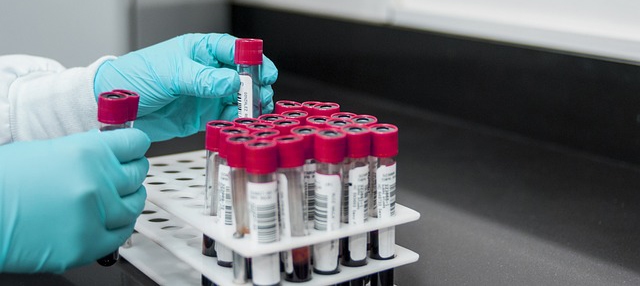Cushing’s Syndrome
Actress diagnosed with rare disease
| Download this episode | Comedy actress Amy Schumer recently made headlines when she announced that she had been diagnosed with Cushing’s syndrome, a rare disease that occurs when your body makes too much of the hormone cortisol. Cortisol helps the body respond to stress and is important for other body functions such as controlling blood pressure and blood sugar, reducing inflammation, helping the body use food for energy and helping the heart and blood vessels work correctly. A little cortisol is acceptable but prolonged exposure to the hormone can cause serious problems. The disease left Schumer with a puffy face, one of the main symptoms, that immediately caught the attention of her fans and led to harsh comments about her appearance on social media. Cushing’s syndrome affects 40 to 70 people per million every year. It most often affects adults, usually aged 30 to 50, but can also occur in children. It affects about three times as many women as men. | Cushing’s syndrome can result from the body making too much of the hormone cortisol or from taking medicines called glucocorticoids, which affect the body the same way as cortisol. The symptoms can vary depending on the level of extra cortisol and the patient’s gender. Common symptom of Cushing’s syndrome include weight gain in the trunk and in the face, a fatty lump between the shoulders, frail skin that bruises easily and slow wound healing. Women with Cushing’s may experience thick, dark hair on their face and body, a condition called hirsutism, as well as periods that are irregular or that stop. Men, on the other hand, may experience a lower sex drive, reduced fertility and problems getting an erection. If you or someone you know is experiencing these symptoms, consult with a physician, especially if the patient is taking glucocorticoid medicine to treat a health issue such as asthma, arthritis or inflammatory bowel disease. | Cushing’s syndrome is caused by having too much cortisol in the body. Cortisol is a hormone that is made in the adrenal glands. It helps the body respond to stress and plays many other important roles, including controlling blood pressure, reducing inflammation, controlling blood sugar and helping the body use food for energy. A hormone made in the pituitary gland controls how much cortisol the body makes. This is called adrenocorticotropic hormone, or ACTH. Some tumors make ACTH, which creates more cortisol and can cause Cushing’s syndrome. Problems with the adrenal glands also can affect cortisol and cause the syndrome. Without treatment, Cushing’s syndrome can cause complications like bone loss, also called osteoporosis, which can lead to broken bones. It can also cause high blood pressure, better known as hypertension, Type 2 diabetes, serious or multiple infections and a loss of muscle mass and strength.. | If your doctor suspects you may have Cushing’s syndrome, he or she may start by asking you questions about your medical history. They also may do a physical exam. If the cause is a medicine you’re taking, no tests are usually needed. If your doctor thinks you have Cushing’s syndrome and you’re not taking medicines that cause it, you may need to have blood and urine tests. These tests measure the amount of cortisol in your body. You also may be given a certain medicine before your blood or urine is collected. This tests your body’s response to steroids. You also may be asked to collect your saliva late in the evening. How much cortisol is in the saliva can help your doctor determine if you have Cushing’s syndrome. You may need a CT or MRI scan. Looking at these images, your doctor will be able to tell whether there are tumors on the pituitary gland or in other parts of your body that may be causing Cushing’s syndrome. | If a corticosteroid medicine is causing Cushing’s syndrome, your doctor will gradually lower your dose. Abruptly stopping a corticosteroid can cause a dangerous drop in your cortisol levels so never stop taking these medicines without your doctor’s approval. Your doctor also may prescribe a non-corticosteroid medicine to replace the corticosteroid that was causing Cushing’s syndrome. If a tumor is causing Cushing’s syndrome, sometimes a medication can be used to treat it. If not, your doctor will surgically remove it from your pituitary gland. Radiation treatments are sometimes used after surgery to lower the risk that the tumor will return. You’ll need to take a cortisol replacement medicine after the tumor is removed. This is because it will take your body some time before it starts producing normal amounts of cortisol. Most people only need to take the cortisol replacement medicine for a few months. However, it could take up to a year.
Transcript
Too much cortisol
Transcript
Helps the body respond to stress
Transcript
May need blood and urine tests
Transcript
Radiation sometimes used
Transcript
